Ever since I got my MacBook earlier this year, I’ve been experimenting with different apps and tools that I could never run on my Windows, Linux, and even Hackintosh setups. This includes everything from the macOS-exclusive Affinity software stack to macOS’ new containerization platform with the unimaginative name of Apple Container.
But among an arsenal of productivity-oriented macOS applications, Raycast stands out from its rivals. Rather than providing killer note-taking provisions or making my coding misadventures easier, it’s an application launcher that makes accessing other apps and services a breeze. With the Windows version of Raycast on the horizon, I recently decided to give the app a shot. And now that I've become a newly converted acolyte of Raycast, here are some neat extensions that have made my macOS life a lot easier.
Brew
For folks who love package managers
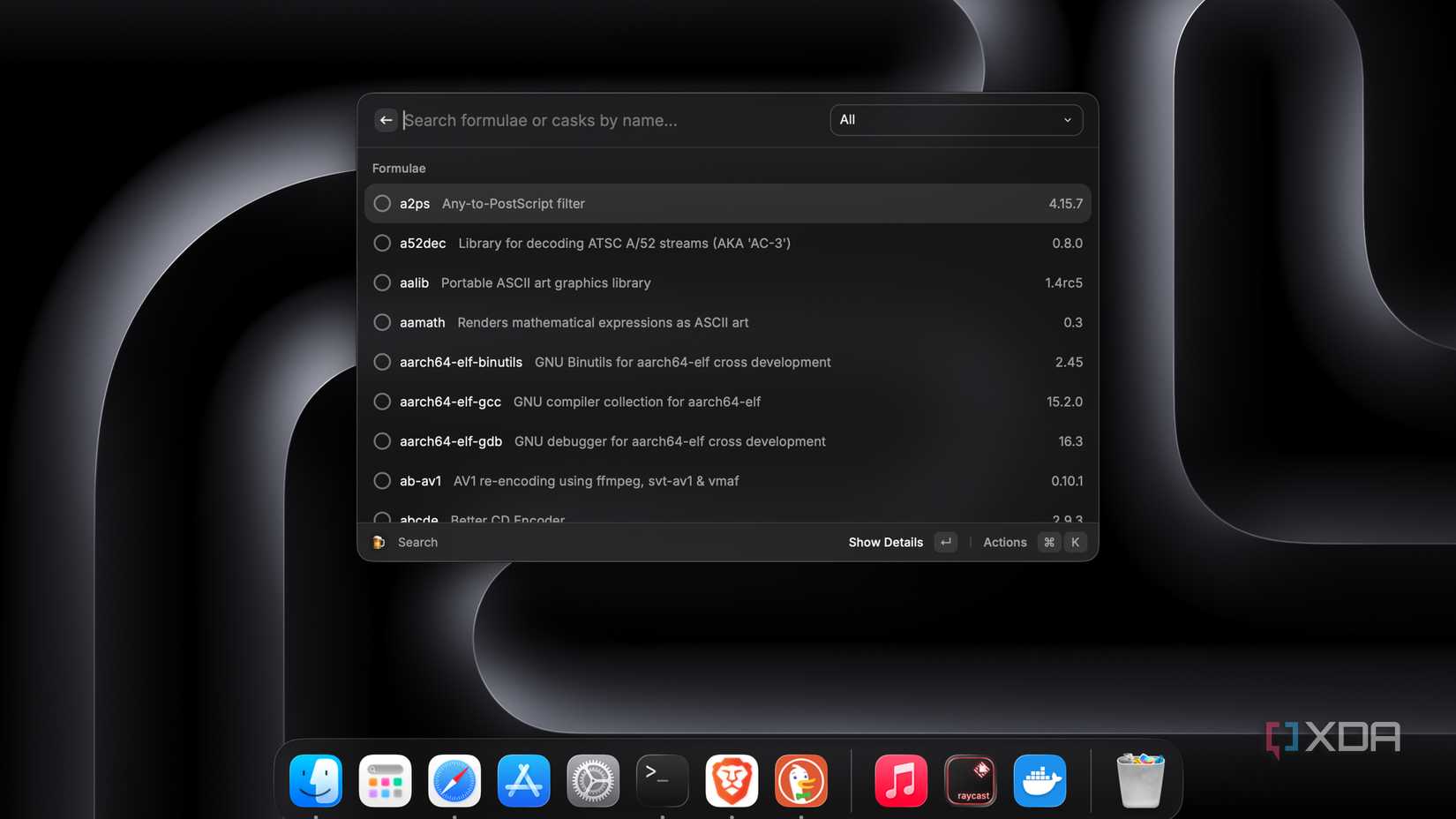
I’ve been using package managers on Windows and Linux for years, and Homebrew scratches that itch on macOS. Thanks to Homebrew, I can type a one-line command inside the terminal to install my favorite open-source applications instead of going through a barrage of windows inside the App Store or configuring .DMG files.
Better yet, the Brew extension inside Raycast makes it easy to manage my Homebrew apps from a sleek menu-based UI. It can search for outdated packages, update them, clean up unused files, and even browse (and install) the thousands of services, libraries, and tools available on the Homebrew repository.
Image Modification
Perfect for quick image tweaks
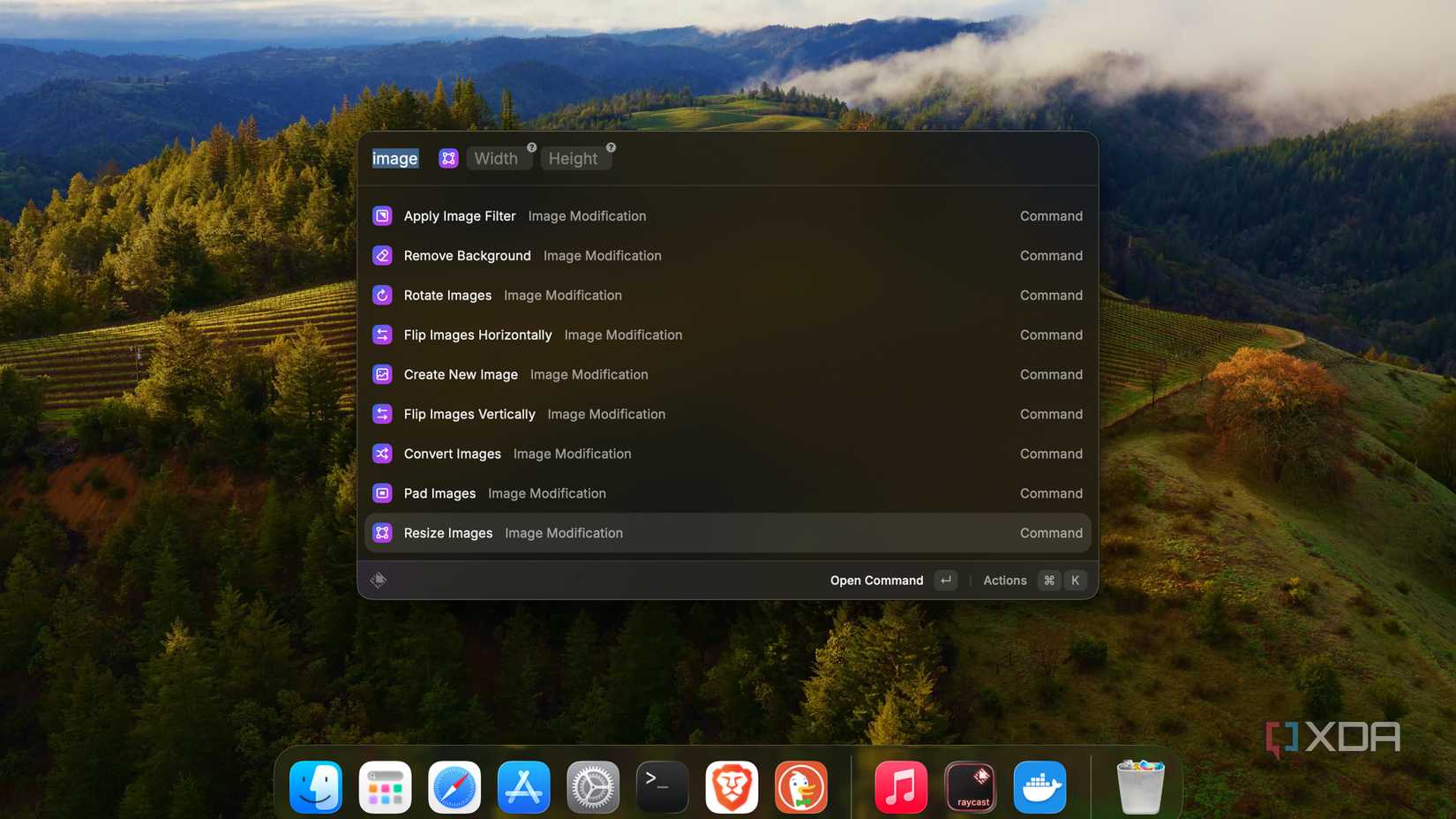
Besides writing multiple pages in a day, my work also involves capturing screenshots and images as well as editing them. While I prefer using Darktable for light touch-ups and heavily modded GIMP for complex edits, there are times when I simply need to tweak the image resolution or convert it into a different format.
The Image Modification extension on Raycast is ideal for the job. On the image transformation front, it can flip, rotate, scale, and resize my screenshots with the press of a button. It supports image padding, can apply a couple of filters, optimize their file sizes, and even remove the backgrounds from photos.
Obsidian
Combine the king of note-taking apps with Raycast
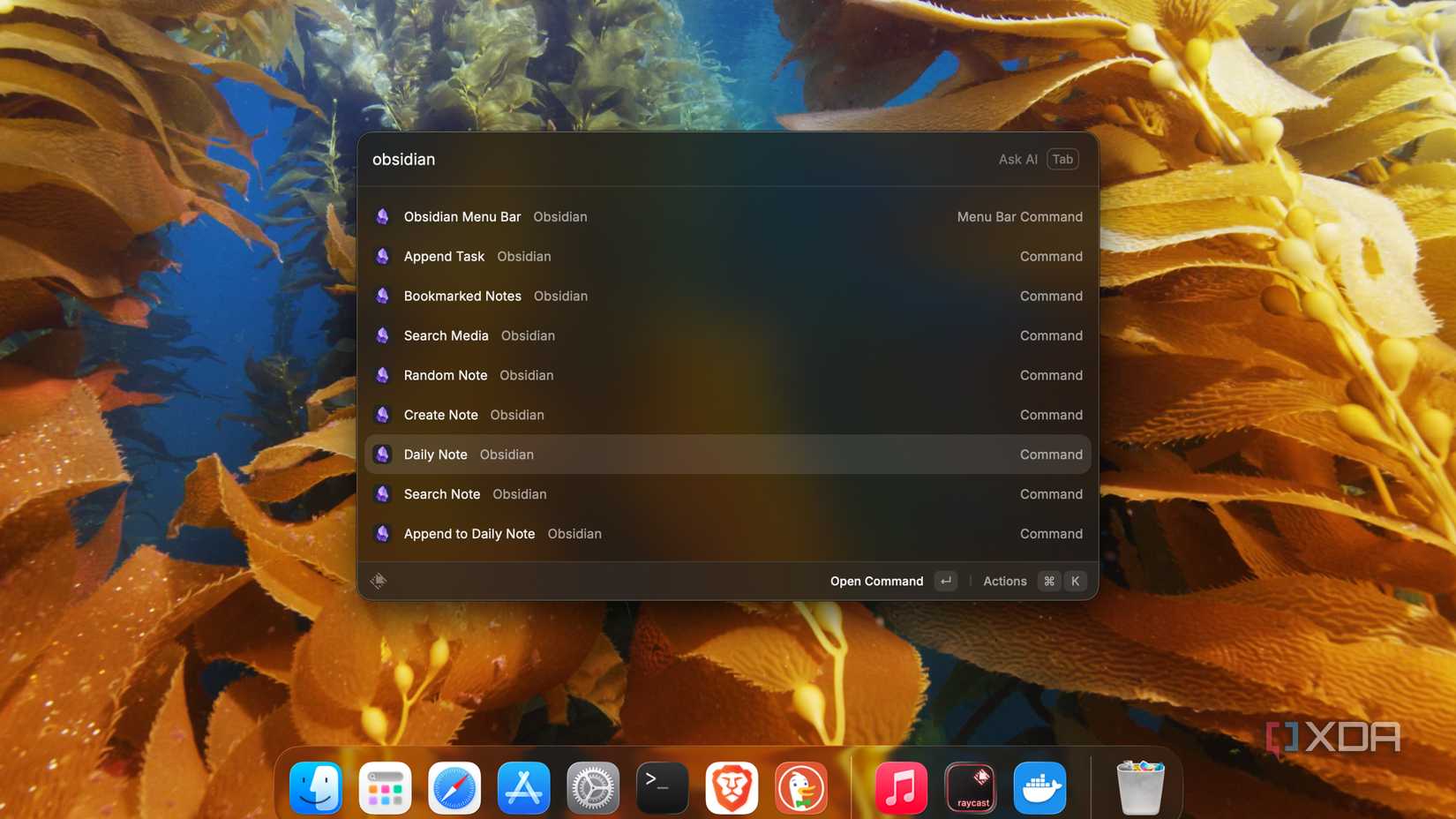
Despite the sheer number of note-taking utilities out there, Obsidian is often considered the crème de la crème for keeping track of your ideas. In addition to its simple UI, Obsidian supports the ultra-useful Markdown format and stores files locally rather than locking them behind company servers. Throw in the vast number of plug-ins and the ability to create a second brain for your ideas using interconnected notes, and it’s clear why many users (including yours truly) adore Obsidian.
What’s more, you can integrate Obsidian into Raycast using a dedicated extension. It’s great for creating new notes and jotting down your ideas in a hurry, and lets you access bookmarked documents quickly. Likewise, the Obsidian extension can append new tasks to your daily notes, search for pre-existing documents, and manage your vault of ideas with a simple shortcut.
Docker
Ideal for self-hosting workloads
If you’re even remotely into the self-hosting ecosystem, you’ve definitely heard of Docker. As the most popular container runtime in the home lab community, Docker is simple enough for beginners while including all the features a tinkering maestro will ever need. The Docker Desktop app on macOS ships with the Docker Engine, CLI, and Compose plugin, making it quite handy regardless of your skill level.
Plus, Raycast supports a Docker extension to simplify your containerization tasks. Not only does it let you control your containers and inspect their logs, but it can also use images to spin up new containerized environments. Likewise, the Docker extension can even help manage Docker Compose projects, which is a neat facility when you rely on these config files as much as I do.
Bitwarden Vault
It even works with Vaultwarden
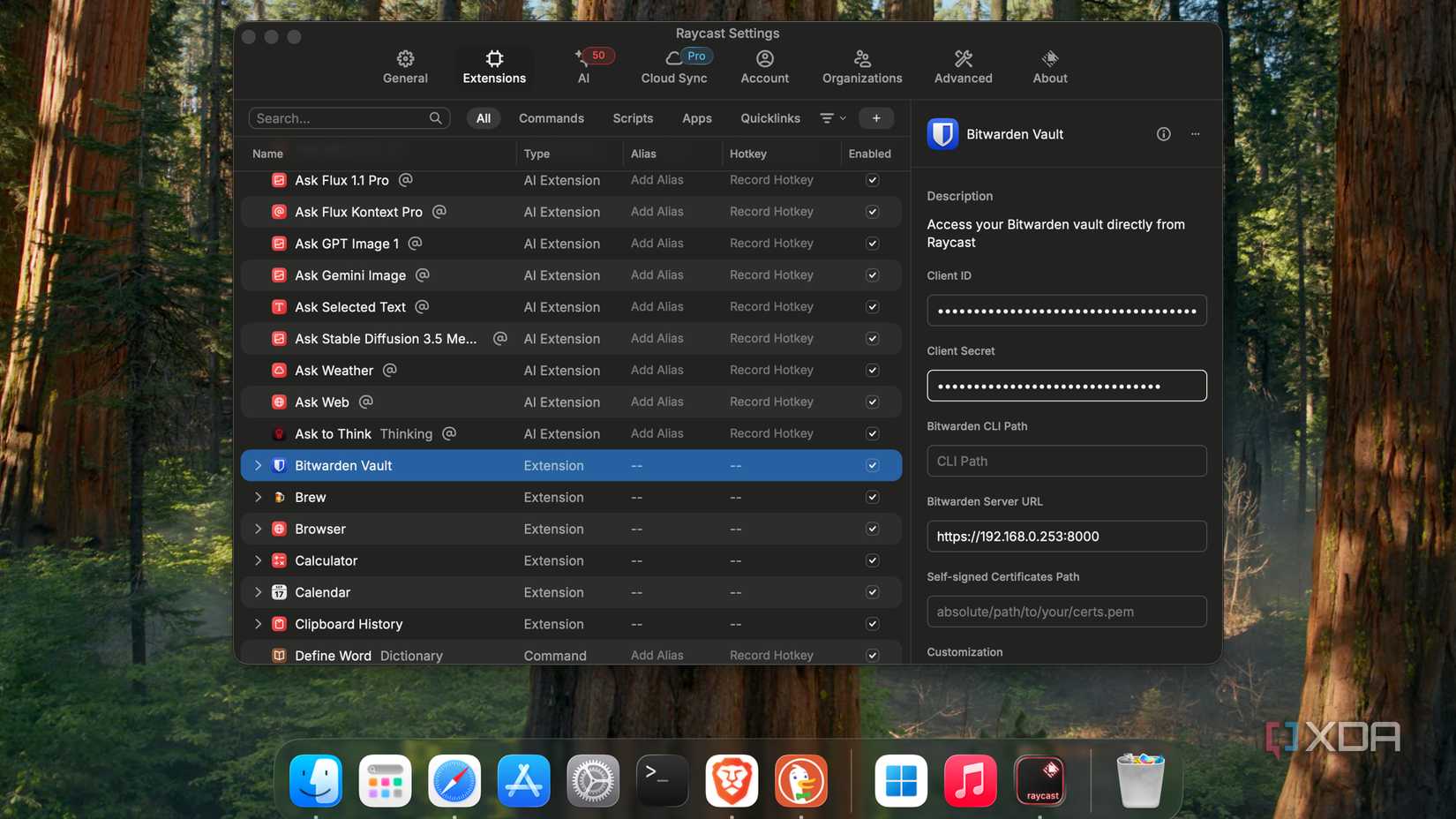
Capable of storing all your passkeys, API codes, private documents, and TOTP tokens inside a protected environment, password managers are a must-have tool for practically every type of user. Depending on your setup and your knack for self-hosting, you can go for cloud-based platforms or deploy local containers to safeguard your hard-to-remember passwords.
Bitwarden is one of the more popular tools for managing passwords, and the Bitwarden Vault extension lets you access your treasure trove of private information with a single key combination. It can also share your passwords with other users, and can generate alphanumeric passkeys in an instant. What’s more, Bitwarden Vault can even connect your Mac with a self-hosted Vaultwarden instance, which is precisely how I manage my passwords.
Raycast is chock-full of useful extensions
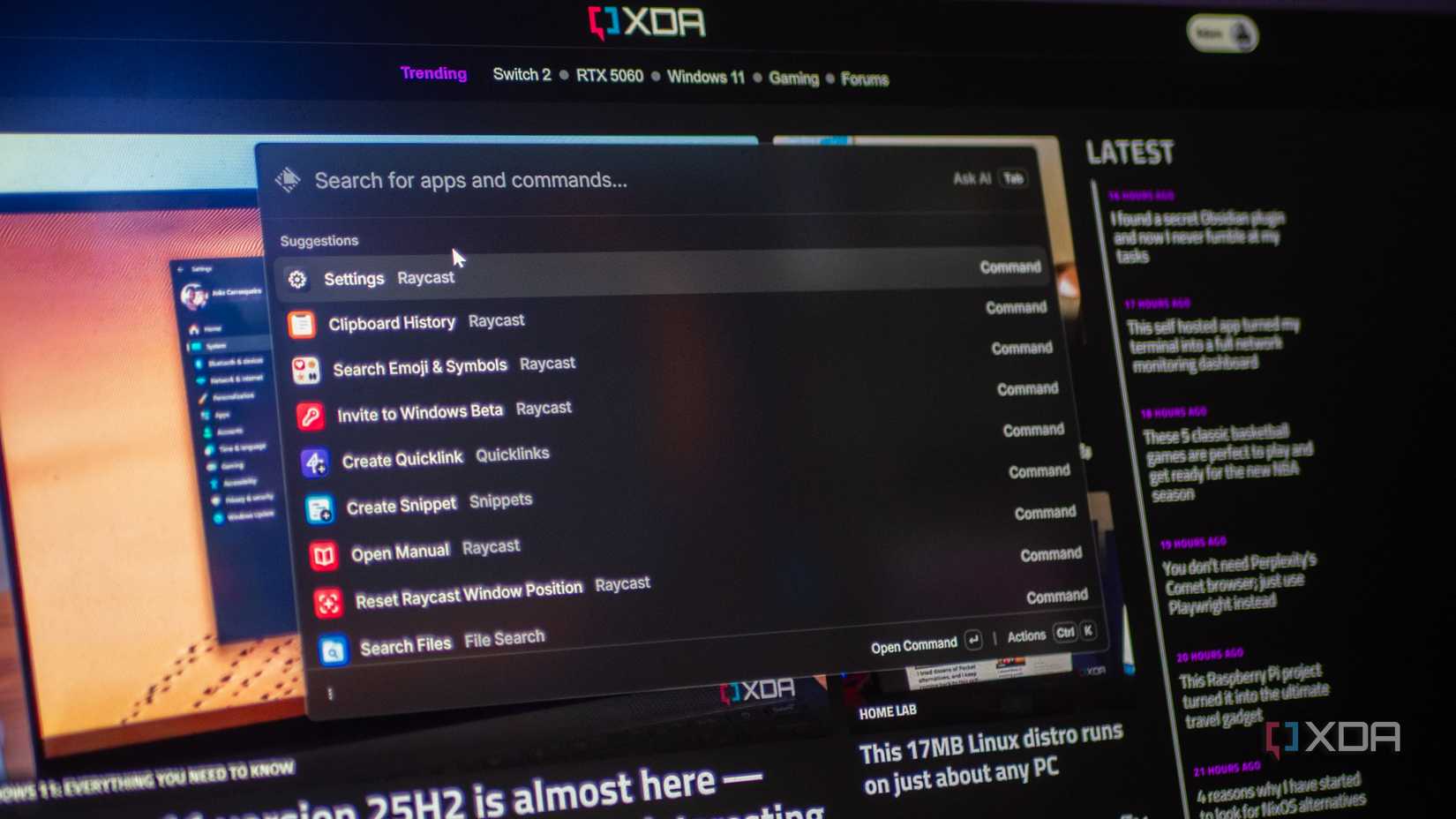
The Raycast store houses a plethora of productivity-oriented, QoL-enhancing extensions that deserve a mention. If you’re into coding, the VS Code, Format JSON, GitHub Repos, and GitHub Copilot extensions are worth installing, while Home Assistant lets you control your smart gadgets and IoT paraphernalia using the Raycast launcher. Video Downloader is another neat extension if you prefer to save your favorite clips from YouTube, Twitch, Twitter, and other platforms. There’s the Tailscale extension, which makes managing tailnets a breeze on macOS. And the list goes on.
.png)











 English (US) ·
English (US) ·